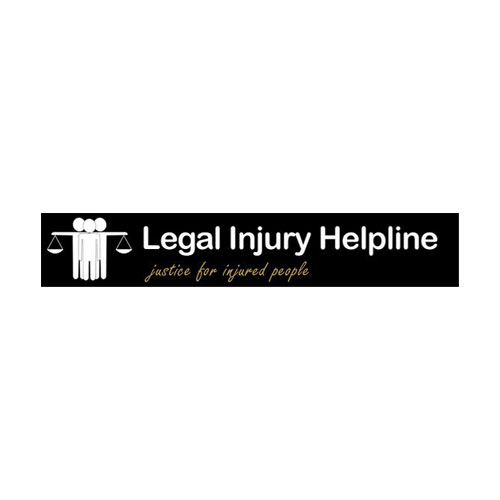When using the road, be you a cyclist, pedestrian or driver of a vehicle, then you and others on the road have a “duty of care” to act in a reasonable way on the road, ensuring your own safety and the safety of others while transporting yourselves.
Unfortunately road accidents do happen and due to the high speeds of vehicles on the road they tend to result in severe injuries and sometimes death.
Involved in a Road Accident?
If you have been involved in an accident on the road that was not your fault and have been injured and suffered material losses, you may want to claim for compensation from the responsible party.
The majority of road accident claims are settled out of court.
The degree of compensation you receive will depend on:
- The overall value of your claim
- The severity of your injuries
- The circumstances under which the accident took place
- Degree of responsibility of parties involved in the accident, including yourself
- Whether the responsible party has insurance or assets of sufficient value to cover your compensation
Who pays out?
In order to claim for compensation, you first have to correctly determine who was responsible and by how much. Generally, both parties bear partial responsibility for the accident in which case you may claim from:
- Your insurance
- The other party’s insurance
- The other party’s pocket, if they do not have insuranceClaim from Road Accident Fund in South Africa, RAF Compensation
- Yourself, if you do not have insurance, and the accident was mostly your fault
What do in the event of an accident?
If you have incurred injuries due to a car accident, you should of course first seek medical treatment and stabilise your situation.
It may seem callous and tricky, but the one of the best things you can do for your case, is to get as much photographic evidence of the accident, the damage to your car, other vehicles, and resultant injuries, evidence of the accident, the damage to your car, other vehicles, and resultant injuries. You should also get the personal details of all the parties involved including driver’s licence details and car registration plates.
Following this, you should report the accident to the police and get a case number. You should also inform your insurance of the incident and whether you intend to claim from them.
Before your insurer can start investigating your claim, you will be required to complete a personal injury claim form. You insurer will determine the amount of blame you will carry for the accident. If you are found to have been in some way responsible for the accident, and allow your insurer to accept liability for the accident, you will receive an official notice, stating officially that you accept some degree of blame for the incident. Your insurance will inform you in this regard.
How long will it take?
From cradle to grave the process of lodging and proving a claim to receiving a payout typically takes 6 months to a year. So if you intend to claim, be prepared to be patient.
What can I claim for?
- Medical expenses for injuries caused by the road accident, this includes past and future treatment.
- Loss of earnings, including job loss
- Loss of support, in the event that as a dependent you lost your principal breadwinner in the accident.
- Funeral costs
- Material damages, such as repairs to your car/motorbike/bicycle.
- Psychological effects such as trauma.
Be aware that most insurance companies have a ceiling for how much they will cover in the event that they pay out to you.
How is a claim proven?
Proving a claim against a responsible party is not a simple process and may require the advice and guidance of a solicitor that is specialised in road accident claims. The majority of firms offer a free first consultation where the merits of your claim will be assessed. There is no point in wasting your time and money on a claim that won’t pass. Your lawyer will gather all the appropriate documents and affidavits to lodge a successful claim.
Common documents needed to prove your claim:
- Medical report from a physician accepted by the insurance companies involved, describing the injuries you suffered as a result of the accident and the required treatment.
- Financial records (receipts and invoices) of medical treatment received.
- Estimates of costs of future medical treatment that are deemed necessary
- Financial records and reports indicating your loss of earnings and/or inability to perform your job on a temporary or permanent basis.
- A psychological report describing any trauma of post-traumatic stress disorder resulting from the accident.
- Police reports lodged by the parties involved.
- Insurance accredited assessment of the value of material damages suffered by you (i.e. damage to your car, road, fences, pavement etc.).
What will reduce the value of your claim?
Even if the accident was not your fault at all, if you did not take appropriate responsibility for yourself and the passengers in your own vehicle, it may be determined that your negligence worsened the injuries incurred as a result of the accident.
Your claim may lose value if:
- You (or passengers) weren't wearing a seatbelt.
- You weren't wearing a helmet whilst riding a bicycle or motorbike.
- You were riding in an unsecured fashion, not specified as a safe way to travel, such as on the back of a van.
- You were under the influence of alcohol or drugs while on the road.
- You, as a passenger, were aware that the driver had consumed alcohol or drugs before operating the vehicle on the road.
- You allowed yourself to be unreasonably distracted while driving (texting while driving for example).
*Each of the above results in an approximate reduction in compensation or insurance coverage by 25 %.
Legal time limits exist on the time that can lapse before you claim. These limits are not set, but depend on the injuries you suffer and how long it takes for you can reasonably be expected to lodge a claim.










